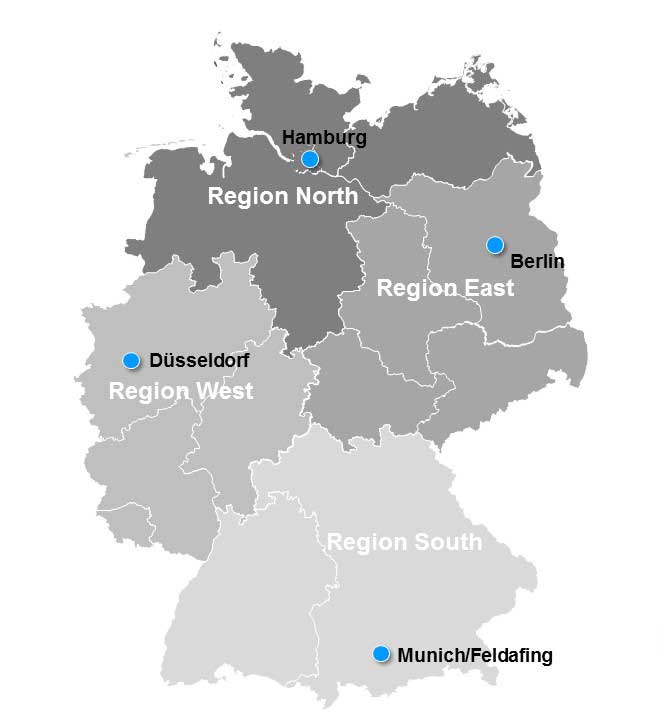Regional Offices Germany

Effective collaboration between Germany’s federal and state government departments is becoming increasingly important in the context of international and development cooperation. The Deutsche Gesellschaft für Internationale Zusammenarbeit (GIZ) GmbH facilitates this collaboration through its four regional offices in Berlin, Düsseldorf, Hamburg and Munich/Feldafing.
The regional offices in Germany function as an intermediary between the international, federal and state levels. They assist the state governments with the implementation of their projects and programmes in the field of international cooperation, coordinating these measures with other donor activities in the country concerned. In addition, the regional offices support networking between institutional stakeholders from politics, business, public administration and civil society across the various German states, mainly through the Federal Government’s bilateral programmes of international cooperation and the donor community’s international initiatives. The latter are gaining in importance following the adoption of the 2030 Agenda: by working together, German and international partners can contribute to the attainment of the Sustainable Development Goals (SDGs).
Commissioning parties and partners
The regional offices also implement a wide range of projects and programmes on behalf of the German Government. Here, the main commissioning parties are the Federal Ministry for Economic Cooperation and Development (BMZ), the Federal Ministry for Economic Affairs and Energy (BMWi) and the Federal Ministry of Finance (BMF). Projects and programmes funded by international donors, such as the European Union (EU) and the World Bank, German industry and governments with which the German Government is engaged in joint development initiatives (such as Chile and China), are also implemented by the regional offices.
In all their activities, the regional offices work closely with institutional networks at the state level, including industry federations and associations, research, educational and scientific bodies, the state ministries’ specialist agencies, state audit offices and government authorities. Drawing on their technical and administrative expertise, they provide advice and support, thus making a major contribution to the successful implementation of political and economic reforms in partner countries engaged in bilateral cooperation with Germany.
Facilitating exchange among experts and managers
Organising fact-finding missions for international delegations and study visits for experts and managers from the German Government’s partner countries in international cooperation is also part of the range of services provided by the regional offices. These visits offer an ideal framework for structured sharing of knowledge and experience among experts and decision-makers from the participating countries.
These dialogue formats are often the starting point for the launch of international platforms of action on sustainable development, such as the multi-stakeholder partnerships envisioned in the 2030 Agenda.